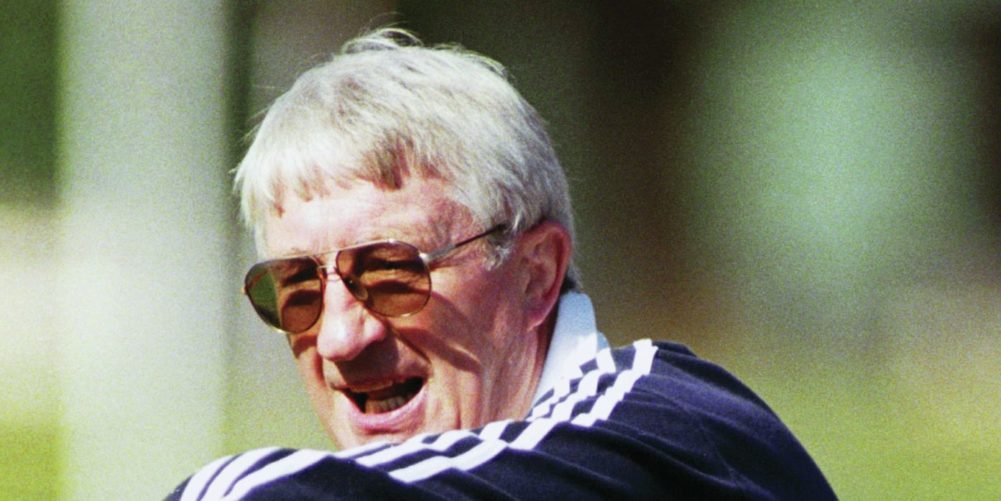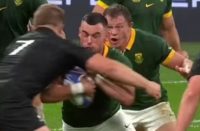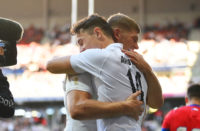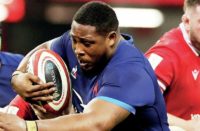CHRIS HEWETT

PICTURE the scene: we are in the final week of the 1997 Lions tour and the world champion Springboks have already been defeated – unexpectedly, dramatically, gloriously. On a highveld pitch in Vanderbijlpark, an hour's drive from the dead-rubber venue of Johannesburg, the press pack are playing a game of touch rugby, writers versus photographers.
The “touch” element is abandoned when yours truly buries some soppy snapper with a tackle of eye-watering, Tim Rodber-esque ferocity. (How memory plays tricks on us in our old age). And who should be watching? None other than Jim Telfer, the “bad cop” to Ian McGeechan's “good” variety in an all-Scottish coaching team responsible for delivering one of the great outcomes in Lions history.
Bored with overseeing yet another training session – mission accomplished and all that – Telfer was killing time by casting a disparaging eye over the anti-talent. And who did he pick on as we trudged back to the hotel? You guessed it.
“Those who can play, play,” he muttered to your columnist. “Those who can't play, coach; those who find they can't coach rugby at the top level go back to the classroom and teach it. And those who can do none of these things write about the game.” He paused before adding, in a tone of deepest despair: “Then there's you, Hewett.”
Some of those gilded individuals who have played and coached at the very highest level, Telfer and McGeechan included, came from a teaching background, as did front-line coaches who never won full international honours: Graham Henry and Warren Gatland, Brian Ashton and Stuart Lancaster, Eddie O'Sullivan and England's very own (sort of) Eddie Jones. The greatest of all, Saint Carwyn James of Stradey Park and the world, achieved the whole caboodle: Test outside-half, coaching genius, revered teacher, gifted wordsmith.
Knowledgeable types with firsthand experience of coaching at the elite end of the professional game continue to insist that a teaching background is invaluable – more so, they argue, than a bottom drawer full of Test caps.
It was the Martin Johnson affair that gave this argument its most recent set of legs. Unquestionably the best and most successful England lock of the modern era, he was given charge of the national team purely on the basis of his playing career. (He had never coached anyone, not even the under-8s). The man who paid the price for this infantile piece of Twickenham tomfoolery was Ashton, who had just led a less-thanvintage side to a World Cup final. You knew it made sense. Not.
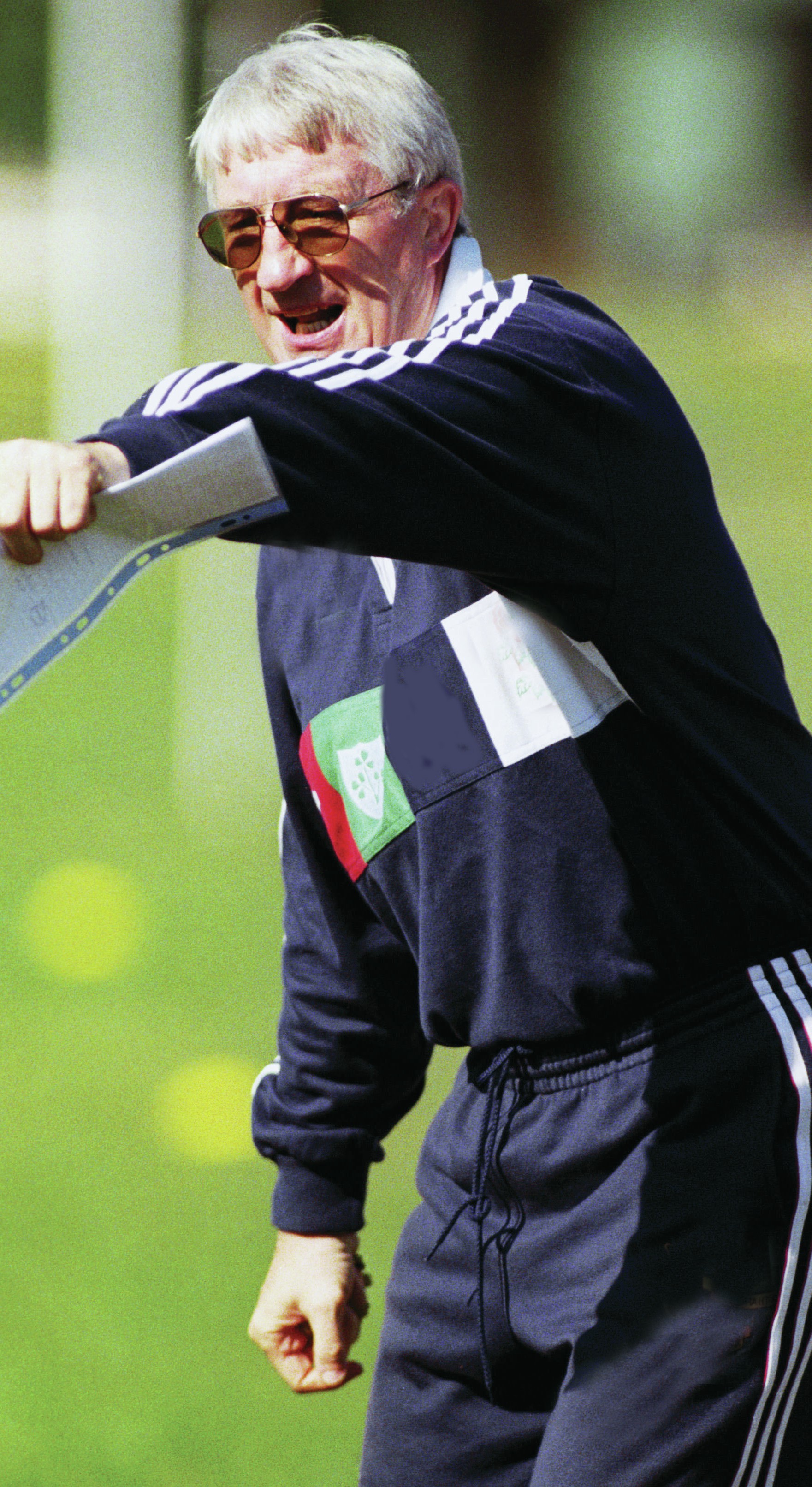
“Teachers have been an entirely positive factor in the development of the sport”
In the nine global gatherings to date, only four of the victorious top dogs – Brian Lochore in 1987, Laurie Mains in 1995, Clive Woodward in 2003 and Rassie Erasmus last time out – had played at the level they were coaching. The on-field achievements of the other five winners were significantly more modest.
Yet after decades of toing and froing on the capped/not capped balance in World Cup coaching, we may be seeing signs of a decisive shift. When England laid hands on the Webb Ellis Trophy almost 20 years ago, only eight of the 20 head coaches knew what it was to take the field in a proper Test match. As recently as 2015, the number had fallen to five.
In that tournament, there were more New Zealanders at the helm of competing teams – Gatland, Hansen, Joe Schmidt, Vern Cotter, John McKee, Milton Haig, Kieran Crowley – than there were former internationals.
But the capped contingent jumped by almost 50 per cent in Japan four years ago and if things stay as they are among the 19 qualifiers for the 2023 competition and Portugal, under the much-decorated and much-travelled Pierre Berbizier of France, pinch the final spot, there will be another rise.
We may not have to wait long to select a full team of gnarled Test veterans from the ranks of World Cup coaches. There is already a half-decent loose trio: Toutai Kefu, the trophy-winning Wallaby and current Tonga boss, would be a shoo-in at No.8; the England flanker Andy Robinson, now with Romania, could do a turn on the openside flank assuming his devout vegetarianism hasn't weakened his sinews; and we'd be in the happy position of choosing between Erasmus of South Africa and the All Black enforcer Jamie Joseph, now heading up Japan, in the No.6 shirt.
Scrum-halves? Even if Portugal come up short, we have Berbizier's countryman Fabien Galthie available for selection. Midfield? Gregor Townsend of Scotland, Andy Farrell (once of England, now with Ireland), and the formidable ex-centre and current Samoa coach Seilala Mapusua would be hot stuff in any veterans' tournament.
This may be an entertaining parlour game, but it's no laughing matter for the low-profile player blessed with the capacity to become a high-profile coach. It will be a sad day when rugby goes full-tilt down the “fame first, qualifications second” road.
“I had a terrible education,” Woody Allen once said. “I went to a school for emotionally disturbed teachers.” A funny line, but it doesn't work in rugby. Teachers have been an entirely positive factor in the development of the sport and the withering of the tradition makes losers of us all.

